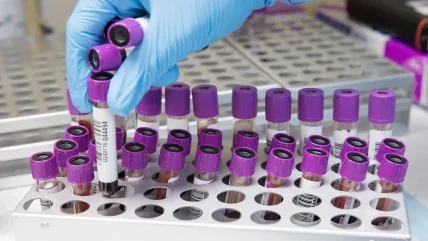
Synedgen has secured a $119m contract from the US Biomedical Advanced Research and Development Authority (BARDA) for GI-ARS drug development.
Under the six-year contract, Synedgen’s lead therapeutic, MIIST305, will be developed as a medical countermeasure for gastrointestinal acute radiation syndrome (GI-ARS) caused by ionising radiation exposure.
Synedgen said the collaboration will meet crucial gaps in national defence preparedness.
Under this contract, Synedgen is creating a rapidly dissolving tablet formulation of MIIST305. This will enhance ease of administration for all patients.
The initial phase allocates up to $17m for proof-of-concept studies using two animal models.
If all options are utilised, this BARDA contract will support MIIST305’s journey through US Food and Drug Administration (FDA) approval.
It will also enhance medical countermeasures research by optimising a new nonclinical GI-ARS model for FDA acceptance.
Synedgen president and CEO Shenda Baker said: “We are delighted to be partnering with BARDA to develop MIIST305 as a therapeutic to address GIARS.
“No currently available FDA-approved therapeutic exists to provide protection to major gastrointestinal organs against acute exposure to ionising radiation.
“Importantly, this programme leverages Synedgen’s MIIST305 programme to address gastrointestinal inflammation and damage from radiation, chemical or physiological sources, thus potentially meeting this unmet need.”
Synedgen has created a drug design platform called Multivalent Innate Immune Signaling Target (MIIST).
MIIST305, a product of this platform, is a non-systemic therapeutic that modulates innate immune receptor responses. It targets the anionic glycocalyx on gastrointestinal cell surfaces to repair and restore the gut mucosal barrier.
The asset is shelf-stable and can be taken orally, making it easy to administer in emergency situations.
In April, the biotechnology company completed the Investigational New Drug (IND)-enabling studies for the candidate.
Additionally, in a Phase 1-ready programme separate from the BARDA partnership, MIIST305 is also being developed as a treatment for ulcerative colitis (UC).
JRO-CBRND medical branch former chief Mark Bohannon said: “The development of MIIST305 as an FDA-approved GI-ARS therapeutic, in addition to its development as a UC drug, would be a major step forward in our efforts to improve not just civilian health but also provide a necessary option for furthering US medical countermeasures against radiation threats.”






